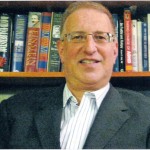 As John Lennon said: IMAGINE!!
As John Lennon said: IMAGINE!!
Imagine political unrest erupts in some region, threatening more than half of the world’s production of medical instruments.
Imagine a typhoon hits Southeast Asia and hospitals are unable to receive latex gloves required for surgery.
Imagine a pandemic causes a demand spike for medical and health care products, thus a global shortage occurs.
The world’s supply chain is the basis of our global economy, security and health, and the risks thereof are numerous. The five “P”’s – powerful weather, pandemic, political instability, port closures and primary sourcing – can easily cause massive disruption for millions. Take Hurricane Sandy, which destroyed shoreline of New York and New Jersey two years ago. Sandy’s effects were greater than society was prepared for – hospitals were shuttered due to power outages and gas lines (I’m sure some of us were reminded of 1979) prevailed as tankers couldn’t deliver fuel to the ports.
Narrow regional sourcing also sets us at risk. More than half of the world’s production of medical and dental hand instruments is processed in South Asia and 90% of exam and surgical gloves are manufactured in Southeast Asia.
Health shocks present another clear case of risk. Since influenza vaccine production is in the hands of a few multinational companies it is safe to say that there would be an insufficient amount of vaccine during a pandemic. In addition, the increasing resistance to antibiotics will make pandemics more of a likely occurrence than ever before.
What can and should we do? Well, no one can predict the how or when, but a plan should be in place for the disruption that will come. We speak to supply chain resilience, well that must become a reality. Secondly, sound business methods, including investments, a robust global network to ensure flexibility, analysis of past disruptions to reinforce contingency planning and detailed disaster preparedness.
Many believe the only effective solution is private-private partnerships – during the SARS epidemic Henry Schein received a pressing call from the government of Hong Kong for masks. The ability to deliver on this demand reflects well on the close relationships with transportation partners, government officials and suppliers.
The same type of partnerships must be present when natural disasters strike. Referring back to Henry Schein, who has developed the model of collaborative public-private partnerships; all companies should have or be developing such as plan. When the next disaster takes place do we want to be starting from scratch? Henry Schein has set aside part of their warehouses with pallets earmarked for emergency medical supplies.
No one sector of the supply chain can face these challenges by themselves. Collaborative partnerships, proactive planning, open communications and effective coordination are the solutions. It is not a matter of if, or when, but if we remain passive, it will be how bad…
Bio:
Expertise in lean six sigma manufacturing systems, inventory systems and process improvements functions. Accomplished in use of optimization models to determine least cost facilities and drill down to workflow details in support of process and profit management. Oversaw all Inventory Collaborate effectively with business managers to resolve variances, refine forecasts and identify opportunities for improvement. While at Reckitt Benckiser, Linde Gas and Johnson & Johnson wore several hats including inventory manager, implementer and trainer of benchmarking and dashboard analytics, leader of cost optimization projects such as Lean and Lean Six Sigma, created and implemented cost and inventory metrics, collaborated across functional silos such as production, receiving, plant personnel and shipping to ensure inventory and cost systems integrity, wrote and implemented and trained staff on new Procedures to align with projects and continuous improvement leader.
Member of various accounting and operational trade associations such as; The Council of Supply Chain Management Professionals, The International Supply Chain Education Alliance and The Society of Cost Management. My interests outside of my work are mostly outdoor activities like hiking, camping, tennis, etc., with a slight lean to gourmet cooking.